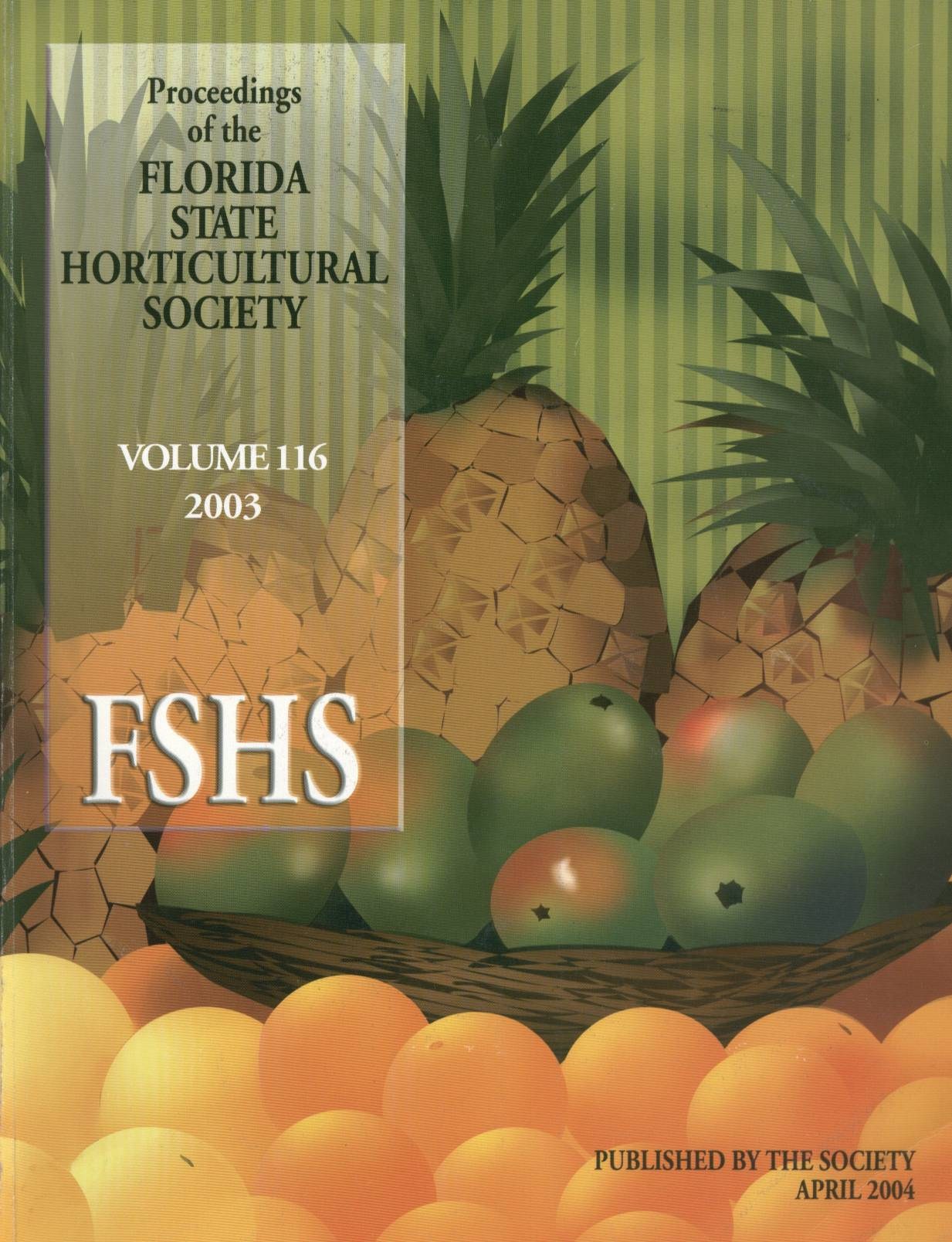Citrus
Development of “Tetrazyg” rootstocks tolerant of the diaprepes/Phytophthora complex under greenhouse conditions
Abstract
Diaprepes (Diaprepes abbreviatus L.) root weevil has become an increasingly important pest affecting Florida citrus production. No known citrus rootstock germplasm appears to be resistant to weevil larvae feeding. Mechanical wounds on tap and scaffold roots caused by weevil feeding create opportunities for invading fungi, especially ubiquitous Phytophthora spp. Our strategy for dealing with this problem is to develop complex rootstock hybrids that have the capacity to tolerate mechanical root damage caused by weevil feeding and then recovery by exhibiting vigorous root growth in challenging soils inoculated with both Phytophthora nicotianaeand P. palmivora. Crosses were made of superior allotetraploid somatic hybrid rootstocks and resulting seed were planted in a high pH calcareous ‘Winder’ depressional soil inoculated with both Phytophthora spp. in greenhouse flats. Vigorous healthy “tetrazyg” seedlings were selected and propagated by grafting to vigorous rootstocks and subsequently rooted cuttings. New mandarin + pummelo somatic hybrids were also included in the assays. Replicated Diaprepes no-choice feeding assays were conducted in conetainers ®, and hybrids selected for reduced root damage were
replanted in the ‘Winder’/ Phytophthora mix to assess recovery potential. Several hybrids showed excellent capacity for complete
recovery in this greenhouse test and are now being propagated
for more extensive field evaluation. Citrus rootstock breeding and selection at the tetraploid level maximizes genetic diversity and selection efficiency, and shows great promise for generating new rootstocks that can tolerate the existence of Diaprepes and Phytophthora in clay loam soils.

